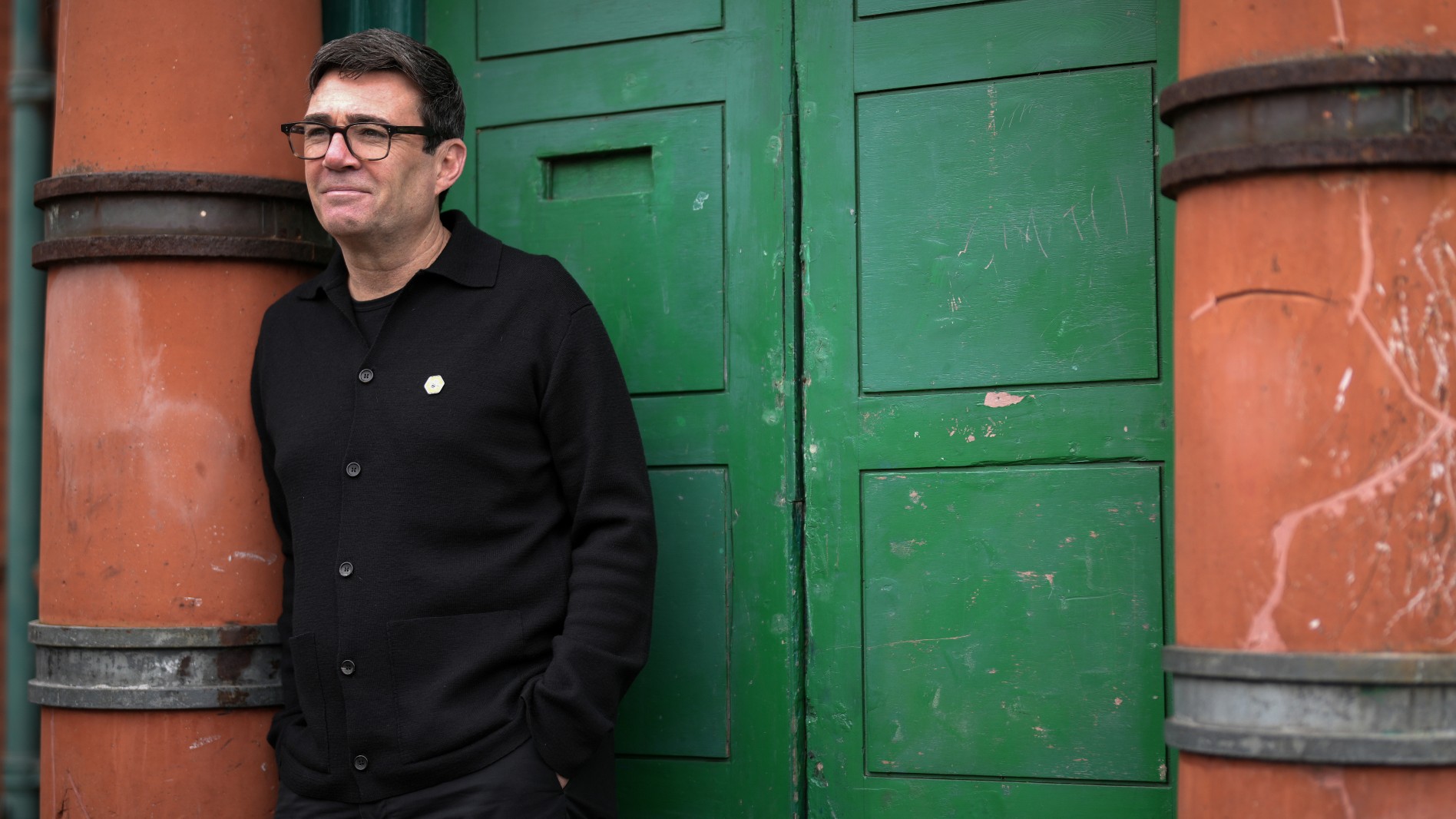Why everyone wants a mayor
The mayoral model of local government is having a moment as power shifts 'closer to people'

A free daily email with the biggest news stories of the day – and the best features from TheWeek.com
You are now subscribed
Your newsletter sign-up was successful
Mayors are more recognisable than MPs and local authority leaders in almost every area that has one, according to new research.
As the 2024 mayoral election campaigns kick off, polling from the Centre For Cities think tank found that around three-quarters of residents were able to name their mayor, compared with 43% who could identify their MP and 20% who could identify their council leader.
While the "mayoral model around England remains a patchwork", said the BBC's political editor Chris Mason, mayors themselves are "currently fashionable". Both the Conservatives and Labour like the idea, so "if you haven't got one yet, that may change before long".
The Week
Escape your echo chamber. Get the facts behind the news, plus analysis from multiple perspectives.

Sign up for The Week's Free Newsletters
From our morning news briefing to a weekly Good News Newsletter, get the best of The Week delivered directly to your inbox.
From our morning news briefing to a weekly Good News Newsletter, get the best of The Week delivered directly to your inbox.
How did the mayor model begin?
The first directly elected mayor in England came in 2000, as a result of the Greater London Authority Act 1999. Ken Livingstone won the vote to become the first mayor of London.
Mayors who are directly elected to cover combined authorities or combined county authorities are often referred to as metro mayors, because they usually cover metropolitan areas.
They are not to be confused with the more historic role of mayors and lord mayors, with their robes and chains. These posts, elected by town, borough or city councils, are largely ceremonial.
How many are there now?
On 2 May, the same day as the local elections, 10 mayors will be elected around England. London, the West Midlands, Greater Manchester, Liverpool City, South Yorkshire, West Yorkshire and Tees Valley already have mayors. For the first time, they will be chosen in the East Midlands, the North East, and York and North Yorkshire, too. The mayor of Salford, the directly elected leader of the city council, will also be selected by voters.
A free daily email with the biggest news stories of the day – and the best features from TheWeek.com
The model "has gradually become the new normal" in the North, said The Guardian, and the rise carries "gamechanging political implications" for levelling up. An "expanding and increasingly assertive alliance of northern metro mayors" could become "the biggest sea change in local politics since the 1980s".
What powers do they have?
The role has been "growing over the last decade", Millie Mitchell, from the Institute for Government, told the BBC. Mayors are "increasingly powerful figures, with power over transport, skills, the local economy, the environment", and with collective control of £25 billion of public spending, "which is really quite substantial".
For a nation that is "often decried as the most centralised in the Western world", said Sebastian Payne on the i news site, "huge progress has been made in shifting power closer to people".
Metro mayors such as Andy Street in the West Midlands and Andy Burnham in Greater Manchester have become a "rare success story" in Britain's "otherwise lacklustre and inconsistent approach to regional growth", said the Financial Times. And those living in mayoralties support "greater decision-making powers for their mayors".
What is next for metro mayors?
The "politics for the rest of 2024" will be "defined" by whether Conservative mayors Street and Ben Houchen win third terms in the West Midlands and Tees Valley, said Payne. The results of the 2 May elections in these two areas will "dictate the next mood swing of Conservative MPs, whether further turbulence lies ahead in the party leadership, and when exactly the general election will be called".
In the longer term, the country should expand the model, said the FT, although it needs to be an "incremental process". Metro mayors "will not be suitable for all geographies, and there will be good leaders – as well as bad ones".
"But the experiment is working. Time to double down on it."
Chas Newkey-Burden has been part of The Week Digital team for more than a decade and a journalist for 25 years, starting out on the irreverent football weekly 90 Minutes, before moving to lifestyle magazines Loaded and Attitude. He was a columnist for The Big Issue and landed a world exclusive with David Beckham that became the weekly magazine’s bestselling issue. He now writes regularly for The Guardian, The Telegraph, The Independent, Metro, FourFourTwo and the i new site. He is also the author of a number of non-fiction books.